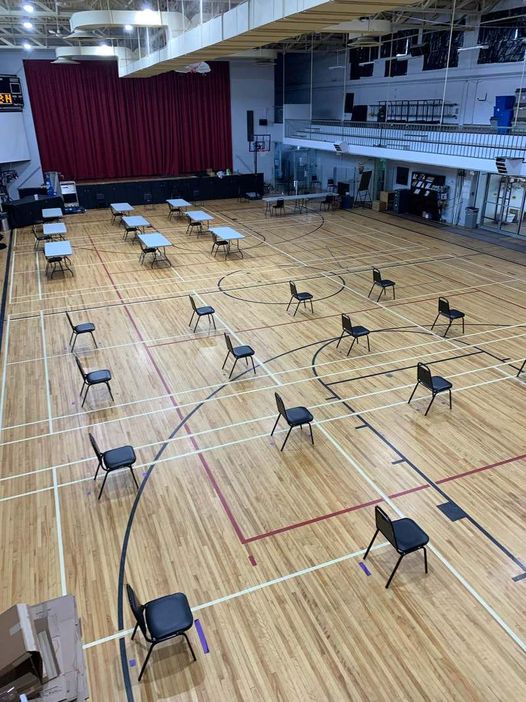Jump in numbers attributed to school outbreaks
Public Health Sudbury & Districts is reporting 16 more positive cases of COVID-19.
All of the cases are in Greater Sudbury except for one in the Sudbury District.
Considering resolved cases, this brings the number of active cases up to 124, and most of them attributed to outbreaks or contact with close cases.
The closure of Lo-Ellen Park Secondary School yesterday has highlighted the rapid spread of the virus among school populations, according to the health agency.
With additional cases reported this week, Public Health has determined there is potential widespread COVID-19 infection among the school community and has extended the closure.
There are presently five Sudbury area schools affected by the virus, three elementary and two secondary schools.
Of the active cases, 40 are considered variants.
Meanwhile, to the west, Algoma Public Health is reporting one new case of COVID-19.
Considering resolved cases, there are six active cases in the Algoma District with one person in the hospital.
Health Sciences North ramps up student testing
As of noon yesterday, Health Sciences North has had no new patients admitted who have tested positive for COVID-19.
Hospital publicist Jason Turnbull says eight admitted patients are currently being tested for COVID-19 and are waiting for results.
He says the demand for testing at the facility’s COVID-19 Assessment Centre has increased greatly in the last week with recent outbreaks declared at local schools in Sudbury.
Usually, the hospital expects to receive roughly 280 requests per day for testing, but this week there were almost 900 requests for Monday, alone.
With this increase in demand, HSN is asking everyone to be patient with Assessment Centre staff and the hospital has increased staffing and expanded hours of operation at the assessment centre to book in people as quickly as possible.
Rolling out the vaccines
The Ford government is set to detail the next phase of its vaccination program later today.
Those who live in congregant care, people with specific health risks, and those living in areas with high COVID-19 transmission rates will top the list.
Starting in April, they’ll be prioritized for the Pfizer and Moderna vaccines.
As well, people between the ages of 60 and 64 will be first in line for the AstraZeneca vaccine, to make sure that more than 114-thousand doses are used before they expire in early April.
They’ll be directed to pharmacies to receive their inoculations.
Starting in June, essential employees who can’t work from home will head the list.
The final phase, everyone else, will begin in August.
Health Minister Christine Elliott says the timeline might be quicker, now that a federal advisory panel has approved a 16-week delay between first and second shots.
Vaccination papers
Health Minister Christine Elliott says the government will provide people with proof that they’ve been vaccinated against COVID-19.
Elliott says they’ll receive a printed “proof of vaccination” document once they’ve received their second dose.
She adds the document will also be sent in digital form later, if people wish, so they can keep it on their mobile phone.
The Ford government has suggested some sort of vaccination proof may be needed in the future to attend crowded locations, such as movie theatres.
But Elliott says they’re not looking at that just yet.
Premiers want more federal health dollars
Canada’s premiers are calling for a big boost in health care spending in the coming federal budget.
Currently, Ottawa pays about 22 per cent of the 188-billion dollars the provinces spend on health care.
But the premiers want the Canada Health Transfer to be increased to cover 35 per cent of the total.
The premiers say the federal government’s financial position is forecast to improve rapidly once the COVID-19 pandemic ends.
But provinces will be faced with increasing debt loads due to health costs.
They say if Ottawa doesn’t pick up a larger share, the most vulnerable will suffer.
Premier Doug Ford says the increase is critical to solving the massive problems exposed by the pandemic in long-term care facilities.
Coronavirus job losses affect women
The Royal Bank of Canada says women have borne the brunt of job losses brought on by the COVID-19 pandemic and there are concerns those changes may be permanent.
In a new report, RBC says nearly 100-thousand working-aged women have completely left the workforce meaning they’re not even bothering to look for a job.
The rate is ten times higher than that for men.
The bank’s report says the longer these women remain out of the job market, the more their skills will erode.
That will make it harder for them to be re-hired, or transition to new jobs, once the economy starts to pick up.



